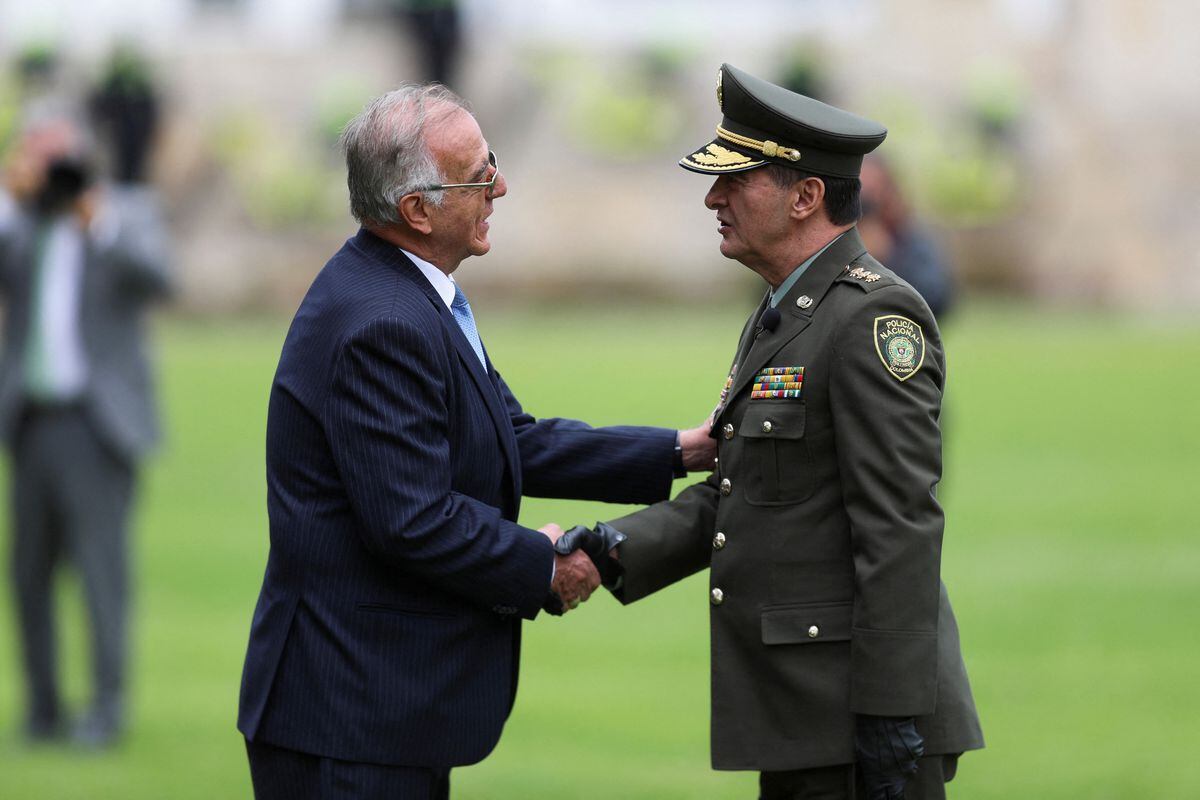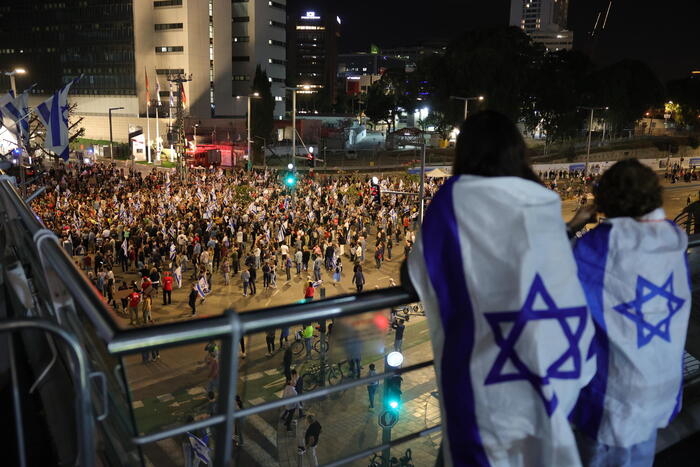The government of Gustavo Petro seems to have put the brakes on its commitment to remove the Colombian National Police from the orbit of the Ministry of Defense, despite being one of the most concrete recommendations of the Truth Commission, which it has proposed to comply with in its entirety. There is no eagerness to do so, said General William Salamanca, recently sworn in as director of the Police. "This decision is being analyzed with absolute responsibility," he told Blu Radio on Thursday. Given the cracked confidence of the citizenry in the Police, the Minister of Defense, Iván Velásquez, had joined that campaign promise, part of the broader debate on a fundamental reform of the security forces.
"If there is distrust between the people and the public force, democracy ends and we do not even dream of peace," Petro said Tuesday at the handover of command to the new director, a ceremony in which he envisioned a public force "absolutely respectful of human rights" for when his term ends, in 2026. "We will turn urban citizen security into a national priority and, for this, from now on, we announce that the entire surveillance police will enter into a thorough retraining, with emphasis on human rights, International Humanitarian Law and management of social protest," said General Salamanca, who returned to service to relieve the dismissed Henry Sanabria. that ended up fulminated by his homophobic and ultra-religious departures at the head of an institution in debt to modernize.
There were, however, no major references to the final report of the Truth Commission, whose recommendations have been back on the table. Despite the fact that the article of the Development Plan with which the Government sought to make compliance mandatory fell through the legislative process, those recommendations still stand. One of the most uncomfortable conclusions of the Commission, which emerged from the peace agreement with the defunct FARC guerrillas, is that the security doctrine – and the concept of internal enemy – exacerbated the armed conflict. And therefore he argues that it is necessary to make a great reform of the public force. Among its recommendations, it calls for "separating the National Police from the Ministry of Defense and placing it in another or a new ministry, as a necessary, but not sufficient, measure to advance in the strengthening of its civilian character and governance in matters of citizen, rural and urban security."
In his first interview as designated minister, before the presidential inauguration on August 7, Iván Velásquez assured that it was already a "decision made," since Colombia "is one of the very few countries in the world that has the Police within the Ministry of Defense." But no concrete steps have been taken in that direction. The first nine months of the government were consumed in the controversies surrounding General Sanabria, the devoted director of the Police who irritated on more than one occasion feminist groups, LGBTIQ, human rights organizations and, in general, the defenders of the secular State with anti-rights expressions that ended up costing him his job. These scandals recalled that the motto of the Police, "God and Fatherland", is copied from the ideology of the Spanish extreme right, quarrels with constitutional provisions and is an "anachronism of our institutions", as sociologist Olga González has recalled.
The fact that the police are in the defense sector has prevented a clear separation between their functions and the role of the military, which must perform very different tasks, explains Juan Pappier, acting deputy director of Human Rights Watch for the Americas. "Removing the police from the Ministry of Defense is a wise and valuable decision, but not enough, it cannot be the end of the comprehensive police reform that Colombia needs," he said. "Other measures must be taken, such as reforming the disciplinary system of the Police, reviewing the protocols on the use of force and the competence of the military criminal justice," he explains. "It would be a serious mistake for the years of government to pass and for substantive progress not to be made on this issue," he adds.
The eventual transfer also opens the discussion of which ministry could house it. Originally, Minister Velásquez envisioned the police in a newMinistry of Peace, Coexistence and Security, an idea for now discarded. I believe that the best option is to pass it on to the Ministry of Justice, which requires reform, as it is a relatively smaller ministry. There, the task of the public force could be coordinated with criminal policy," says Pappier. Although in several Latin American countries the Police is in the Interior, in Colombia it is the portfolio of politics, in charge of relations with Congress, which would open new questions. Transferring it to Justice makes perfect sense, agrees Jerónimo Castillo, an expert in security and criminal policy at the Ideas for Peace Foundation (FIP), although he warns that it is a complex process: "This requires citizen participation, it cannot be a discussion of technicians behind closed doors, it has to be open, facing the citizenship and with the search for legitimacy."
In the midst of the government's wave of reforms, the police are delayed. "We began to make an in-depth study of how to make this change beneficial for society, strengthen the Police and citizen security, not cause damage to the Military Forces. We want to do this demarcation very well, and it is not done overnight," Justice Minister Nestor Osuna told this newspaper in February.
The police have been at the center of the controversy for several years, after the multiple abuses documented throughout the protests during the period of Iván Duque (2018-2022). The complaints were frequent amid the confinement measures to address the coronavirus pandemic, but that unrest dates back to the first wave of demonstrations against Duque, at the end of 2019. Back then, a projectile from the disputed Mobile Anti-Riot Squadron, the Esmad, killed high school student Dilan Cruz during a peaceful protest in downtown Bogotá.
Some time later, in September 2020, the murder of law student Javier Ordóñez in police custody, tortured by two patrolmen who had subjected him to incessant tasers despite his pleas, unleashed citizen anger. The crime, committed inside an Immediate Action Command (CAI), provoked two chaotic nights of unrest in Bogotá, which in turn triggered new and serious abuses, with a balance of 13 dead. Mayor Claudia López asked Duque to lead a profound process of police reform. The government then responded with a closed defense of the public force and the Duke himself was photographed with a police jacket to stage his support.
This background preceded the social outbreak of 2021, when reports of human rights violations multiplied, including the use of weapons in an indiscriminate and lethal manner, arbitrary detentions and beatings. That citizen fatigue paved the way to the presidency of Petro, a fierce critic of the repression of protests. In the most recent study by the firm Invamer, in February, 50% of respondents had an unfavorable image of the Police, compared to 42% of favorable image.
Subscribe here to the newsletter of EL PAÍS about Colombia and receive all the informative keys of the current situation of the country.
Subscribe to continue reading
Read without limits
Read more
I'm already a subscriber






/cloudfront-eu-central-1.images.arcpublishing.com/prisa/PZBP67YSD5GI7KKEC2MGANZJKA.jpg)


